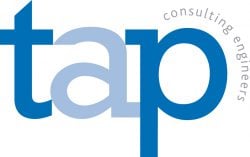Expect The Unexpected
Last week you may have been affected by – or at least heard about – the O2 outage. It affected customers on O2 and GiffGaff, along with operators who use its network including Tesco Mobile: it’s estimated up to 32 million people were affected.
And then there’s the corporate side – TfL’s live bus tracking system and timetable relies on it. Whilst the buses still ran as normal, people couldn’t stand at bus stops saying “it looks like it’s just around the corner”.
This sort of event should focus your mind on a couple of questions:
What 3rd-party systems do we entirely rely on to run our business?
What happens if your email goes down, your internet access fails or your e-commerce website crashes?
Part of our job at EJC is to minimise the chance of software and hardware failure. We work with the best suppliers we can find; we create systems with security and redundancy in mind; we monitor, manage and maintain every aspect of what’s keeping your company running on a day-to-day basis.
But don’t forget there might be other services we don’t look after for you. And nobody can guarantee everything will work, all the time.
So if you have an email failure, can you get a message out to your customers via a different system? If your internet connection fails, is there a backup – or can you work elsewhere? Planning should not be about ‘if’, but ‘when’.
For example, we have put a Mimecast email management solution in place for most of our clients: as well as improving security and archiving it would enable you to still access email if Office365, GSuite or Exchange fails.
When something goes wrong, what will you do?
What third-party systems do we sort-of rely on?
We’re pretty confident there were plenty of people who were planning to make some last-minute tweaks to a presentation on the train when the O2 outage stopped them, or were planning to read a company’s ‘about us’ page en route to an interview. Both scuppered.
It’s easy to entirely blame the third party in cases like this – but how much you rely on these ‘little’ things day-in, day-out is something you should stop and think about. And how you manage without them is as much your responsibility as the providers’.
Whenever there’s no electricity or water for even a short while, Britain reverberates with “well, you don’t realise how much you rely on it until it’s gone, do you?”.
What do you rely on a little bit more than you realise? How will you cope when there is a problem?
Are you the point of failure?
We often see (and normally fix) situations where the biggest risk of failure is some kind of policy or approach that has been put in place without much thought for potential consequences.
For example, only one person has a key to your office: if that person disappears, nobody can work.
Slightly extreme, but the point is there. What are your points of failure? If a network goes down and a password is required to restart it, who knows the password. What happens if they’re out of contact (e.g. if they use O2…)?
Find the weakest links in your chain, the single points of failure, the potential for harm. What do you need to do to fix them?
If you’d like to discuss any or all of the three issues above, and how they affect your business, please click below to get in touch or give us a call on 0370 600 9700.

EJC understand the issues that we face as lawyers and offer proven real world solutions. I have been impressed with their professionalism, honesty and most of all their commitment to achieve the best result for their clients. I have no hesitation to recommend EJC as a strong IT partner for legal businesses.
Carole
Hailey
Managing Partner
Waterfront Solicitors

EJC have helped us meet the challenges that we face as a growing professional service firm. Our firm relies on the consistent performance and availability of key systems so that our fee earners can be as productive as possible. Therefore we need to work with an IT partner like EJC, who can engage directly with our suppliers. I highly recommend EJC as a trusted IT partner for professional service firms.
David
Anslow
Managing Director
The Anslow Partnership

Druces was experiencing recurring performance issues and service interruptions with its [hosted] systems. We asked EJC to conduct a detailed audit to allow us to identify where the issues were occurring and who we needed to work with to resolve them. Their approach was expert, professional and thorough. The insight it gave Druces allowed us to plan and act with confidence. I would recommend EJC to law firms looking to improve their technology service, delivery and benefits.
Paul
Davies
IT Manager
Druces

The quality of IT is vital to Fisher Meredith’s success and the Infrastructure Assessment by EJC has given the firm a clear roadmap and budget to deliver a secure platform that will support our continued growth…. Since we began working with EJC, they have delivered real improvements to the reliability and performance of our systems. Critically, they work successfully with our internal team, providing expertise and resource that extends and complements our own capabilities.
Stephen
Hewitt
Managing Partner
Fisher Meredith

EJC work with a number of our clients and in my dealings with them I have always found them to be knowledgeable and to offer straightforward advice. I would recommend EJC to anyone that is looking for a professional organisation to help them get the most out of their IT.
Neil
Thompson
Managing Director
2LS

